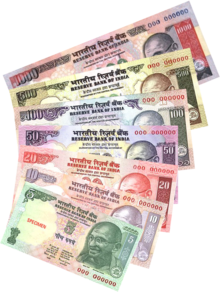Vivek Kaul
One of the promises made by the Bhartiya Janata Party(BJP) before the sixteenth Lok Sabha elections was that it will get back all the black money that has left India over the years. This issue really caught the imagination of the voters. After coming to power, the party and its leaders have reiterated that they are still committed to getting back all the black money that has left the Indian shores.
Nevertheless this remains a difficult task given that the money is spread across tax havens all over the world. The economies of tax havens operate on all the money that is stored in their bank accounts, and so they wouldn’t be exactly be bending over their backs to hand over the money back to India. Also, the government needs to decide whether such an operation is feasible or are there better ways of looking at the situation like tackling the black money problem at home rather than trying to get back all the money that has left the Indian shores.
Before we get any further it is important to define what black money is. A ministry of finance white paper published in May 2012 suggests that “There is no uniform definition of black money in the literature or economic theory.” It then goes on to define black money as “ as assets or resources that have neither been reported to the public authorities at the time of their generation nor disclosed at any point of time during their possession.”
In simple English this is money which has been earned but not been declared as an income and hence, no tax has been paid on it. This is precisely how the National Institute of Public Finance and Policy (NIPFP) had defined ‘black money’ in its 1985 report on Aspects of Black Economy. The NIPFP defined ‘black income’ as ‘the aggregates of incomes which are taxable but not reported to the tax authorities’.
Black money is generated from a variety of transactions including criminal activity. Nevertheless a major portion of black money is generated through legal activities. The ministry of finance white paper points out a number of reasons as to why people do not declare their entire income. “For example, a factory owner may under-report production on account of theft of electricity which in turn leads to evasion of taxes…Sometimes the procedural regulations can be such that complying with them may increase the probability of further scrutiny and thereby the incidence of the burden of compliance, creating a perverse incentive not to report at all and remain outside the reported and accounted proportion of the economy,” the report suggests.
Of course, this leads to under-declaration of income and lower tax collection by the government.
Further, sometimes culture and social practices also play a role “in deciding the preferences of citizens between tax compliance and black money generation.” In a country where not declaring income is a norm, generating black money may be totally acceptable. India fits this perfectly, with only 3.5 crore individuals out of a population of 120 crore paying taxes.
So, how does the country get rid of this menace? There are no easy answers to such a complex problem. Nevertheless, there has to be a starting point. The finance ministry white paper calls “for political consensus as well as patience and perseverance”.
The political consensus is the starting point. But are the Indian political parties really interested in weeding out black money? The answer is no. Allow me to elaborate.
A study carried out by the Centre for Media Studies sometime in March this year suggested that around Rs 30,000 crore would be spent during the 16th Lok Sabha elections which happened in April and May 2014. Of this amount the government of India would spend around Rs 7,000-8,000 crore, the study suggested. The remaining amount would be spent by candidates and their parties.
Candidates are allowed to spend Rs 70 lakh for fighting a Lok Sabha election in bigger states. For other states the amount varies from Rs 22 lakh to Rs 54 lakh. While officially candidates stay within this limit, unofficially they spend a lot more money, as news reports appearing around election time often point out. The question is where does this money come from? A major part of the Indian elections are financed through black money. Some of this money is essentially black money coming back to India from abroad, particularly from places like Dubai. This money is routed back through the hawala route.
Further, the money that politicians earn through corruption finds its way into real estate. Many real estate companies are essentially fronts for the ill-gotten wealth of politicians. Hence, are the politicians willing to disturb the status quo on this front? Are they willing to carry out reforms in the process of election campaign finance? Or it too lucrative an opportunity to let go of?
A serious effort of tackling black money problem will mean looking into real estate transactions, which generate a significant portion of black money in India. The finance minister Arun Jaitley recently talked about making Aadhar cards compulsory for real estate transactions. While that is a good move, there are certain underlying distortions that need to be set right in the real estate sector, which comprises of close to 11% of the Indian GDP.
The stamp duty to be paid on real estate transactions is close to 5% in many states. This leads to individuals under-declaring the value of the transaction when they are selling the real estate they own. Over and above this there are other transactions costs of searching for a property, registration, commissions to be paid etc. These small things are that need to be improved, if the “real estate” sector is to be made more transparent.
Further, when a fresh purchase is being made from a builder, he usually insists on a significant portion of the total deal value to be paid in cash. This is understandable given that builders are usually fronts for or in partnership with local politicians and politicians cannot be declaring their real incomes.
To conclude, if the black money menace has to be tackled in India, the politicians need to clean up their own acts first. Everything else is just noise.
The column originally appeared in The Asian Age/Deccan Chronicle with a different headline on Nov 8, 2014
(Vivek Kaul is the author of the Easy Money trilogy. He tweets @kaul_vivek)

